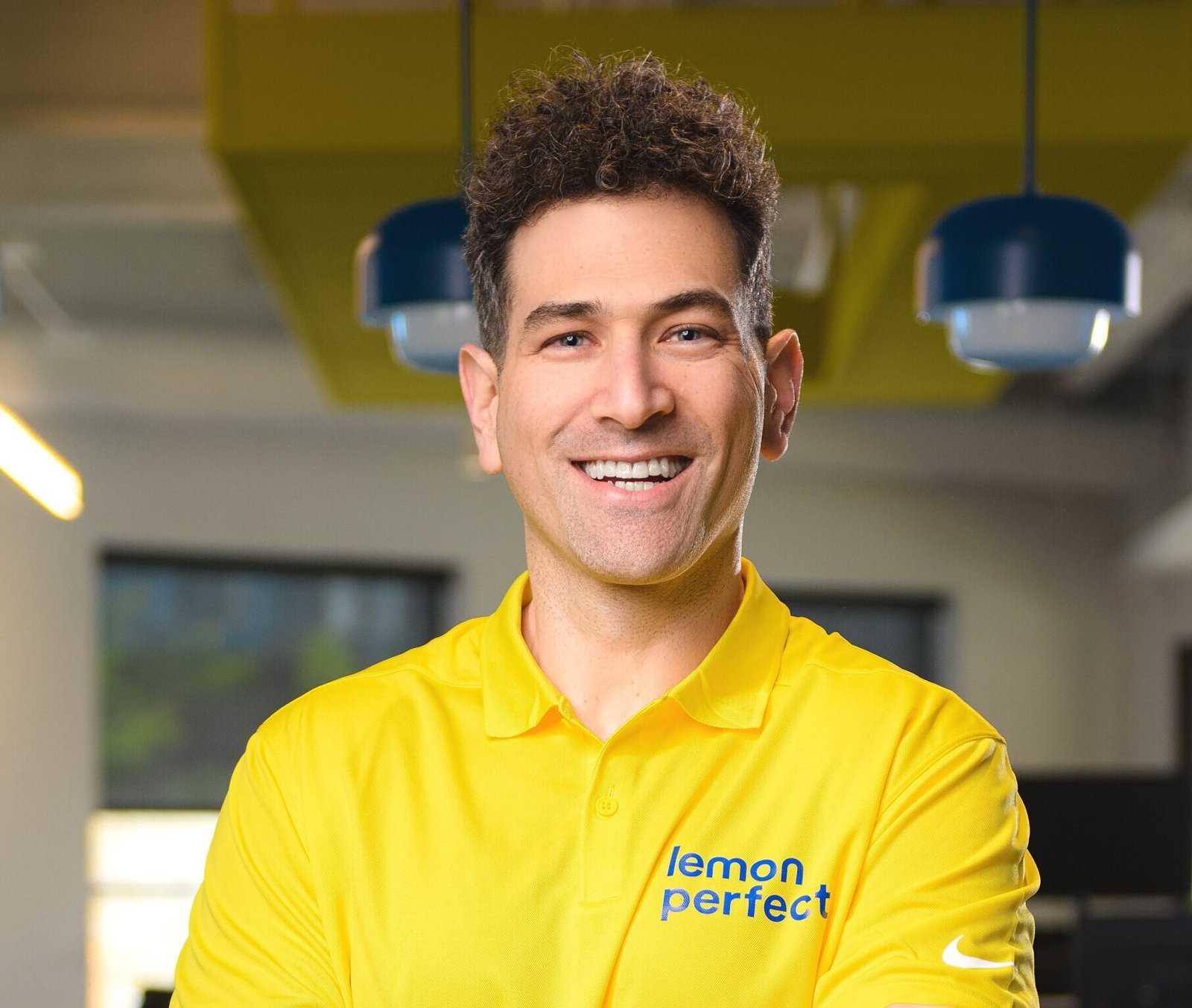I recently went one on one with Timur Khabirov, co-founder and CEO of Prequel.
Adam: Thanks again for taking the time to share your advice. First things first, though, I am sure readers would love to learn more about you. How did you get here? What experiences, failures, setbacks or challenges have been most instrumental to your growth?
Timur: I studied design for many years, using a number of different digital tools of varying levels of complexity, including CAD and 3D tools as well as editors for both still images and video. They’re all built to enable creativity, helping an engineer, designer or artist turn their ideas into reality.
Of all the applications and software I worked with, I was most inspired by computer vision – the blend of AI technology with graphics to generate visual content, including artistic work.
But most of these were aimed at experts, people with many years of training under their belts, and not really something that an average person can get their head around without spending ages both learning the ins and outs of the application and perhaps also possessing some domain knowledge. Certainly not something anyone can pick up and create visual content with immediately.
That’s one big inspiration for Prequel, bringing AI-powered creative tools to everybody, democratizing art and design, and removing the barriers to creativity, so that many more people are able to produce great-looking content in a short space of time.
In the early days, the biggest setbacks were financial. This will inevitably be a challenge for all founders at the start of any business journey, regardless of their levels of funding or sources.
It’s not just pure cash flow either. You may have a great vision, know exactly what you’re trying to achieve, and are certain it will be successful. But the level of available resources always dictates whether anything is possible at a certain time. If those goals can’t be met, your overall plan is certain to be affected.
I’d say diligent market research was the key to our initial growth. In many ways, the skills needed to be a successful founder are something you learn from education. Doing your homework on time, preparing for tests, and really understanding a subject well is the proven path to educational success and the best grades.
Starting a business actually isn’t so different. I feel one of the most important initial steps is investing the time and effort to thoroughly understand the market and how your product idea will fit in, then adjusting your ideas accordingly. Skipping this part of early business planning is a reason some startups encounter early problems.
When co-founding Prequel, it helped a lot that this was not the first time we’d founded a business, and already had experience in key areas such as user acquisition. We knew how to create a business from scratch and what pitfalls awaited us.
It’s a heck of a lot harder to get started when it’s your first attempt, when those first challenges may seem insurmountable. You quickly learn that they’re usually not, and simply adapt around them.
Adam: How did you know your business idea was worth pursuing? What advice do you have on how to best test a business idea?
Timur: Visual art is actually one of the oldest forms of communication. The earliest examples there are of human creativity come from drawings and paintings in caves, pre-dating any formal, written language.
It’s pretty clear that art will never go out of fashion. Only now, our lives are completely different, and we’re able to build better tools for expression and creativity. It’s that idea of enabling creativity that’s in our DNA.
With the proliferation of affordable mobile devices with high-quality camera hardware, processing power and storage, we could see there was going to be an explosion of creativity with video in the near future, and that’s why video is a big part of Prequel. A demand for not just short clips, but full-screen, longer content, that’s no longer held back by limited technology.
Given the recent rise of social networks focused on imagery and video content over more traditional formats, especially among young people who see everything through a smartphone lens, and are moving away from Facebook in favor of platforms such as Instagram and TikTok, it’s now clear we were on to something back then.
We were already familiar with the market, which was a massive advantage, and that comes back to our advice on why early planning and business research matter so much.
If there’s an area you’re not an expert in or lack experience in a critical aspect of your market – it’s a sign you need to hire the right strategic partners. That’s just part of business, realizing where some additional knowledge is needed.
For this reason, assembling the right team early on matters hugely, and although that’s an entire topic in itself – indeed there are long courses and volumes of books that cover how to assemble a team – in my opinion, the most important quality to look for is someone who knows how to create a business.
Adam: What are the key steps you have taken to grow your business? What advice do you have for others on how to take their businesses to the next level?
Timur: For us, having a solid roadmap was a key part of how we planned Prequel’s growth. I recommend always keeping an eye on the long-term, and a big part of that is planning for how you see our market changing, in five years, or more.
I think it’s important to keep asking yourself what you’re trying to do. What is the USP of the business? Has it changed? Are you correctly taking into account how the market will evolve?
It could be summarised with one simple idea – keep paying attention. Pay attention to your own business and how it is operating, to competitors, the wider market, and to consumer tastes. The technology world has had many classic examples of popular organizations disappearing after not paying attention to those interesting, but tiny underdogs, who pose no initial threat but quickly rise to disrupt an entire industry.
Perhaps the best-known example is rental giant Blockbuster failing to react to the rise of internet video. Early technical limitations led some to predict that streaming video services would not take off in a meaningful way. But those limitations were quickly overcome, and customers often move in the direction of whatever option is most convenient.
Adam: What are your best sales and marketing tips?
Timur: Again, it’s primarily about individuals. Sales and marketing is no more or less part of a business offering than R+D or product development, so likewise, you want the people in these departments to be as skilled, thoughtful, and incisive as your best developers.
Therefore the same advice rings true – you need to inspire your marketing team, have great people managing them, and be clear about how they’ll fit into the organization’s overall structure.
Adam: What is your best advice on building, leading, and managing teams?
Timur: Having good leaders on board right at the start is the best piece of advice I can think of. A team of individuals that’s with you for every step of the journey. They’ll be there for both your early successes and failures, and gain an innate understanding of how your business reacted to those problems.
And as I hinted at before, you can’t be the only expert in every single aspect of your business. You need expertise that can be trusted and relied upon. It’s important to know when to give up some control and know that your team can still execute the company vision.
But managing teams is about inspiring them too. You’re the one with that vision, the plan, and the end goal. Inspiration is about communicating those ideas really well, giving your team confidence that their own roles and contributions within the organization are part of the big picture.
Adam: What are your three best tips applicable to entrepreneurs, executives, and civic leaders?
Timur: I’d say the first two tips are the areas I’ve already mentioned – managing your team well and prioritizing diligent market research before launching.
I’ve picked them based on my own experience. Once you have a good business idea in place and you’re absolutely confident of its potential, the execution comes down to being in the right place at the right time – in other words knowing the market, and having the right people on board to make it possible.
The third tip, well that’s a more personal one. In my experience, a good founder needs to manage their emotion.
Yes, I’d say being a founder is also about personality, and how that translates to your actions as a leader. It’s not just about knowing what the right thing to do is for the company, but also acting decisively at the right time. Or choosing not to act, if that is the right course of action.
Emotion can lead to errors, especially when the way you feel about a decision contradicts the advice you’re receiving from your team. Perhaps it is better to ask yourself why you feel a certain way about an issue, and that may make you realize that emotion, not facts, are behind it.
Adam: What is the single best piece of advice you have ever received?
Timur: Be honest to yourself. Be honest about the things you can do well and those you can’t. What’s really good about your products and organization, and what isn’t? What’s actually possible? It’s another question of personal emotion. You may want to go in a certain direction, but are you ready for it? Is everything in place? Is it the right time?
Many large, well-established companies launch new products that ultimately fail to succeed. Perhaps the failures symbolize a lack of honesty among decision-makers who believed the organization was capable of something it wasn’t. Or a lack of honesty about the real-world demand for what they were attempting. Maybe a lack of honesty about the company’s readiness.
Of course, reality is never usually quite this simple. You may have spent time researching your market, have the right team, and a great idea. You may assume everything has been done correctly and have planned for every possible eventuality. But if you’re truly honest you’ll never be under the illusion that success is a guaranteed right. Challenges can come in any form at any time, and there are always new ones out there you haven’t thought of.
Knowing that these risks will certainly crop up in the future is part of running a business. Honesty is admitting not all of them can be planned for. But acknowledging that limitation is part of the solution.









